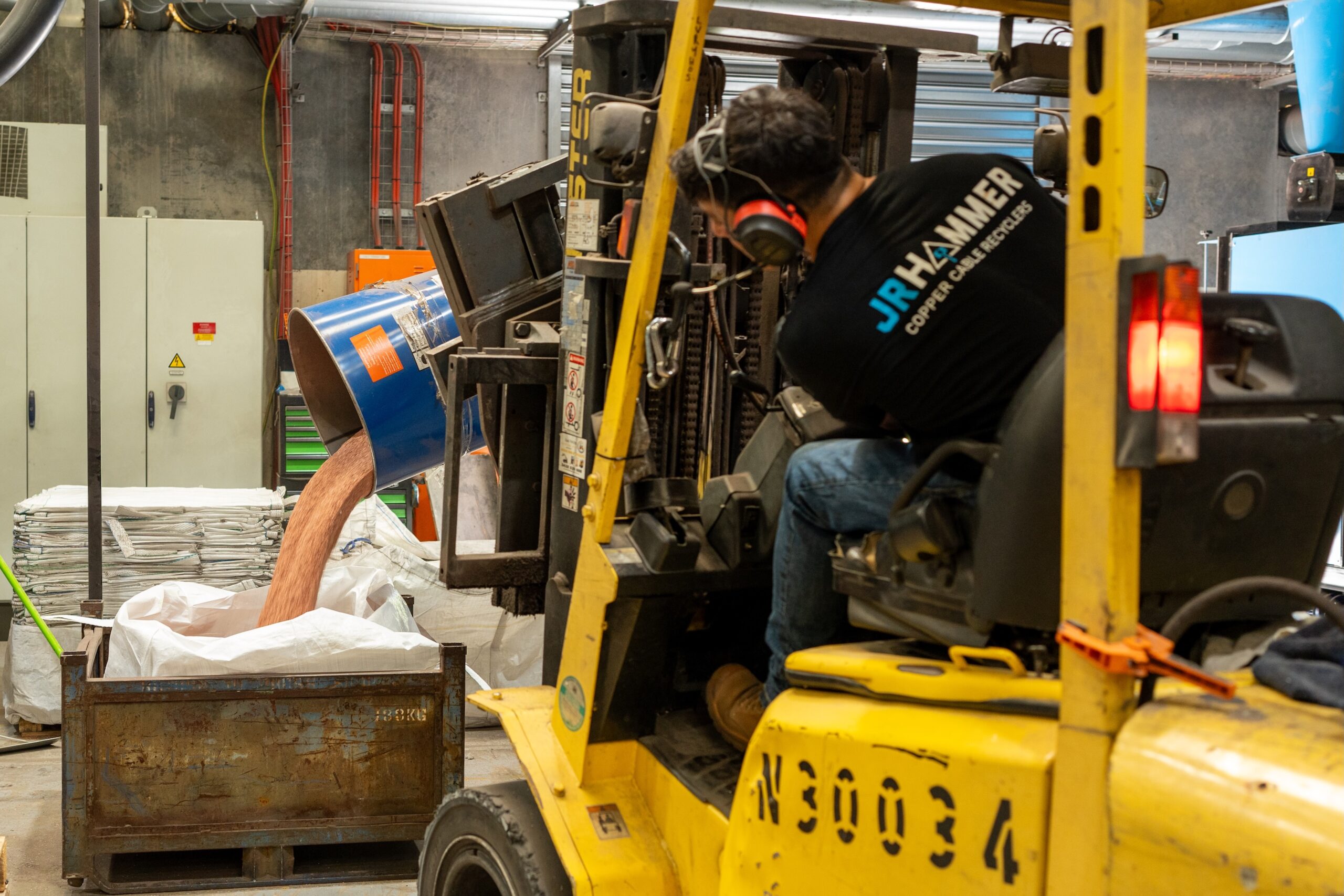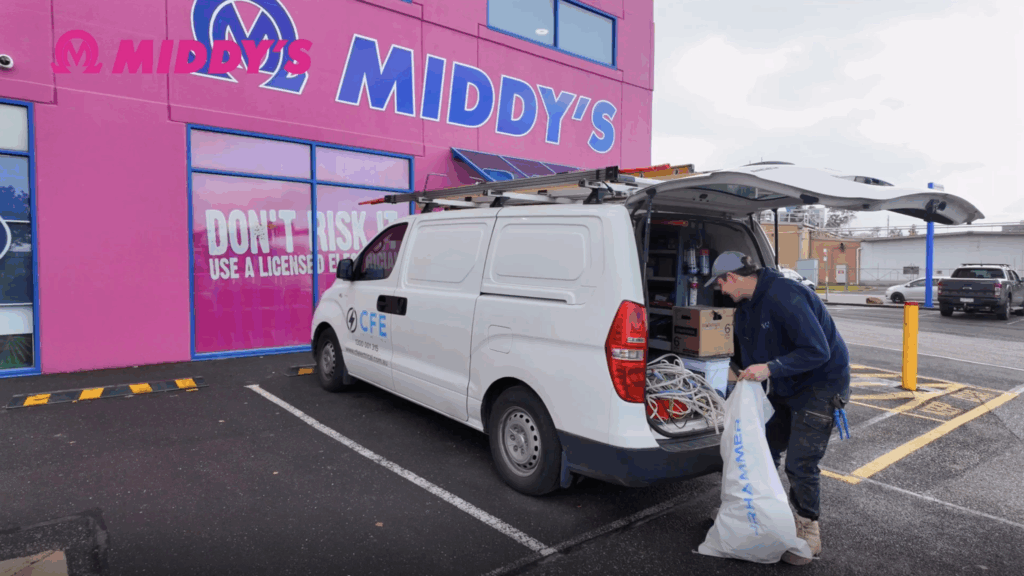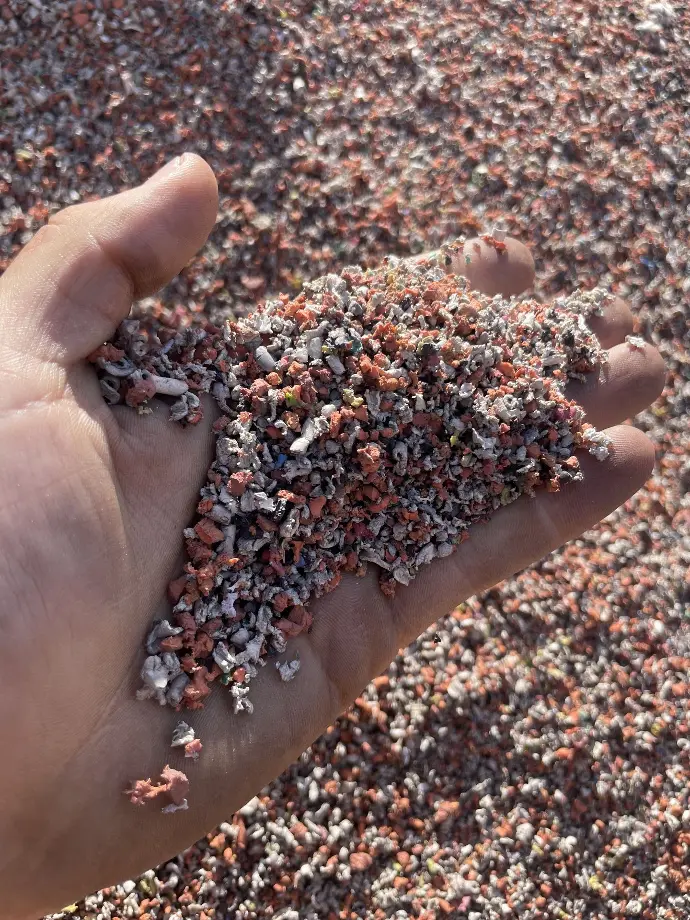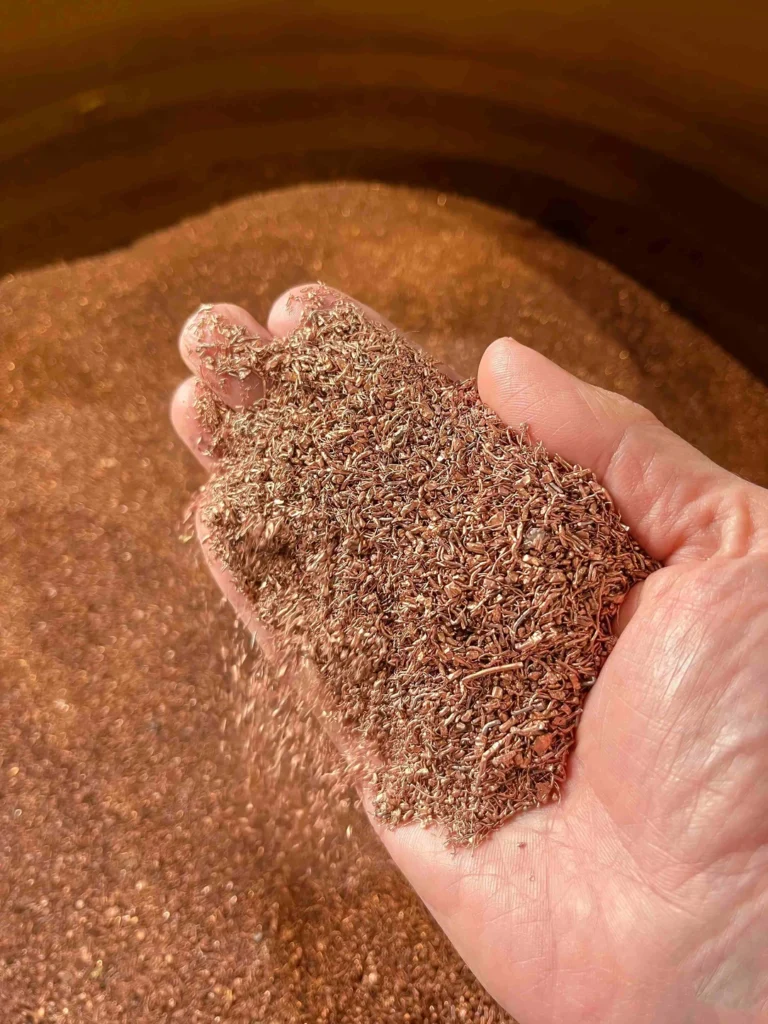How Smart Cable Recycling Can Cut Project Costs

While telco giants are set to reap a $10 billion from recycled copper during their fibre rollout, electrical contractors continue to overlook similar opportunities. The proven reality is that smart cable recycling, when applied strategically, isn’t just eco-conscious but good for the business, as well.
A pile of cable offcuts sitting in waste bins represents either a $200 disposal cost or a $5,000 profit stream, and this gap reveals how traditional cable disposal has become a hidden drain on project margins. Smart contractors who get it are already turning this oversight into competitive advantages.
Traditional cable disposal as hidden margin drain
Many contractors overlook both the hidden costs of traditional disposal and the untapped value in their waste. Transport, labour, storage add up fast, making cable waste management more expensive than expected. Conventional recycling methods also recover only a small portion of the material’s true worth.
Skilled electricians lose billable hours sorting and loading, while fuel and time go into multiple disposal trips. Valuable copper sits in storage areas that need extra space and security. Also, without proper documentation, ESG reporting becomes another time drain.
In many cases, contractors pay to remove materials that still hold significant value. Cable waste contains copper, aluminium, and PVC insulation, materials that most traditional recyclers simply discard or burn rather than recover.
The difference becomes clear when compared to advanced recycling. Outdated methods often contaminate materials, lowering resale value and limiting reuse. Few recyclers provide clear proof of what’s actually recycled, which leaves contractors exposed to compliance risks and ESG gaps.
Smart cable recycling equals to smarter profits
This is where smart and advanced recycling gets crucial. Modern processors like JR Hammer use technology that recovers a minimum of 90% of materials (double the industry standard of 50%). Contractors aren’t just reducing costs through this; they’re creating entirely new revenue sources from materials they once paid to dispose of.
Processing speed matters, too. At 2.5 tonnes per hour, we handle six times more waste than standard 400kg/hr systems. This means there are no more long processing hours or waiting around since your cable waste moves through quickly and payments are received promptly. Add in our price-match guarantee, and you know you’re getting the best market rate every time.
Traditional scrap metal dealers reduce sale prices to factor in landfilling costs attributed to cable insulation materials, whereas JR Hammer – without the negative value implications – removes these values. The more cable waste you generate and turn in, the more you earn, transforming an old headache into a genuine revenue stream.
RecyCable revolution
Making recycling convenient was a priority, so JR Hammer partnered with trusted suppliers including Lecky’s Electrical and Middy’s Electrical to create drop-off points right where contractors are already going. They’re able to offload cable waste conveniently during regular materials pickups and no special trips are needed.
Contractors drop off their waste, earn store credits on the spot, and JR Hammer handles the sustainability documentation. This efficient system handles all the paperwork automatically, so contractors simply collect their store credits while their compliance requirements are taken care of behind the scenes.
This creates fewer collection runs, a minimal storage space needed on-site, and more time for billable work that matters. It’s smart recycling that fits into contractors’ existing routines instead of disrupting them.

Strategic and operational benefits
The operational gains extend beyond basic efficiency, since better waste handling also comes with reduced liability and, in some cases, lower insurance premiums. There are fewer workplace hazards: no overflowing bins, no unsecured copper attracting theft, and no improper storage violating OH&S regulations, only safer, cleaner sites.
Real-world impact from small jobs to major projects
Small contractors
(1-5 employees/500kg-1 tonne monthly) often settle for lower payments from scrap dealers, who factor in the cost of disposing unrecoverable materials. Smart recycling removes that penalty by recovering almost everything, so instead of getting paid less to cover someone else’s waste costs, contractors get full value for their materials.
Mid-sized projects
(5-10 tonnes) see timeline benefits including faster site clearance, fewer storage issues, and reduced project delays. This translates to stronger margins and stronger bids and gives the team breathing room for on-time delivery at a better cost.
Large infrastructure projects
(50+ tonnes) gain the most benefit. With the ability to process high volumes quickly, our smart cable recycling system helps keep large-scale operations running smoothly and on schedule. The built-in ESG reporting supports compliance requirements which is often a key factor in winning major tenders.
Simple implementation with proven ROI
Our free waste audit shows exactly what value you’re currently missing. When you’re ready, we integrate seamlessly into your operations with flexible scheduling and clear, transparent pricing.
Contractors can recover their setup costs within months and the gains only grow from there. JR Hammer regularly reviews and fine-tunes the process to help contractors earn more, while the price-match guarantee protects them from market volatility.
Our Melbourne facility runs the industry’s most advanced processing technology, with ongoing innovations developed through partnerships with CSIRO and RMIT.
As Josh, the founder of JR Hammer puts it: “I set out to find a better, more sustainable way to recycle cable waste that the scrap industry can’t handle—and bring that material back into the industry for a second life.”


Why your competitors hope you keep traditional disposal
According to Department of Climate Change data, Australia’s waste management challenges will continue to create opportunities for innovative solutions. With the global recycled copper market projected to hit $28.98B by 2030, smart contractors are already moving to claim their share.
The gap between traditional scrap dealers and modern recycling technology has never been bigger. While older methods recover under 50% of the cable, advanced processing pushes that above 90%, nearly doubling the materials recovered from each load.
Businesses seeing cable waste as an opportunity and not just a problem are moving ahead. Those sticking with outdated disposal methods are falling behind in both revenue and reputation.
In a world where sustainability is becoming a key to winning major projects, can you really afford to leave that value on the table?
The smarter way forward
Smart recycling creates real competitive advantages. Contractors using advanced recovery technology are cutting project costs, meeting ESG requirements, and generating revenue from materials they used to pay to dispose of.
Get the facts on your waste value. Our free audit shows exactly what you’re throwing away and what it could be worth with the right recycling partner.
Explore more stories on our blog:


